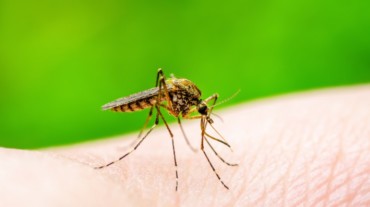In India, outbreaks of food and waterborne illnesses have become rampant since the past couple of years. Now yet again, the season of infectious diseases is coming alive with cases of dengue fever on a rise in Bengaluru and Delhi. In fact, ahead of the monsoon this year, dengue cases have put the state health officials in Uttar Pradesh and Kerala on alert.
Not just in India, Singapore has seen a massive spike in dengue cases, and 13,000 cases have been reported in the first half of 2022. Between April 2022 till June 2022 alone, the country saw over 9,000 cases, according to data by the country’s National Environment Agency, which is double the caseload as compared to the entire dengue season in 2020 and 2021.
What is dengue fever?
It is a viral mosquito borne disease, which is caused by various strains of the DENV virus, ranging from 1–4 stereotypes, DEN-1, DEN-2, DEN-3, and DEN-4. Dengue is transmitted through the bite of a female mosquito (during daylight hours) carrying either of the four strains of the dengue virus. The dengue mosquito flourishes in sub-tropical moist and humid temperatures, hence, the virus becomes rampant in India and abroad between the period of June to August.

Symptoms of dengue fever
A person bitten by the infected mosquito can manifest symptoms like:
- Fever
- Joint or muscle pain
- Headache
- Nausea
- Vomiting
- Swollen glands
- Pain behind the eyes
- Rashes, in a period of 3-14 days
“These symptoms are usually mild in children and teens, but for adults mild dengue symptoms can typically last for a week and in some cases, it can lead to dengue fever and cause additional complications. Dengue fever, when serious, can lead to bleeding (even intracranial), low blood pressure, shock and other organ damages, including the liver and kidney,” Dr Suranjit Chatterjee, Senior Consultant, Internal Medicine, Indraprastha Apollo Hospital, New Delhi, told Health Shots.
Also, read: National Dengue Day 2022: How to protect yourself and your kids from the breakbone fever
Preventive measure to avoid dengue
Prevention of the infectious disease actually depends on how well the vector is controlled. According to Centres for Disease Control and Prevention (CDC), the following measures should be taken to control dengue infection:

- Prevent mosquito bites by using an insect repellent, with one of the active ingredients like Picaridin, Oil of lemon eucalyptus (OLE) or Para-menthane-diol (PMD)
- Always wear long-sleeved shirts and trousers. In short, keep your body covered to avoid any bites.
- Control mosquitoes inside and outside your home. Use screens on any windows and doors and repair any holes to not allow mosquitoes outside to enter your house.
- As a breed, dengue thrives in stagnant water, so reducing the habitat available is highly helpful. Empty and clean all items that hold water as mosquitoes lay eggs near water.
- Avoid outside travel. But if you do, pack a travel health kit to prevent mosquito bites.
- See a healthcare provider immediately if you develop a fever, headache, rash, muscle or joint pain.
Treatment for dengue
While there is no medicine available to treat dengue directly, one can have paracetamol or acetaminophen while non-steroidal anti-inflammatory drugs like ibuprofen and aspirin should be avoided. The latter can lead to blood thinning and increase the risk of haemorrhage.
For milder dengue symptoms, drink lots of fluids and stay hydrated.
Source link




